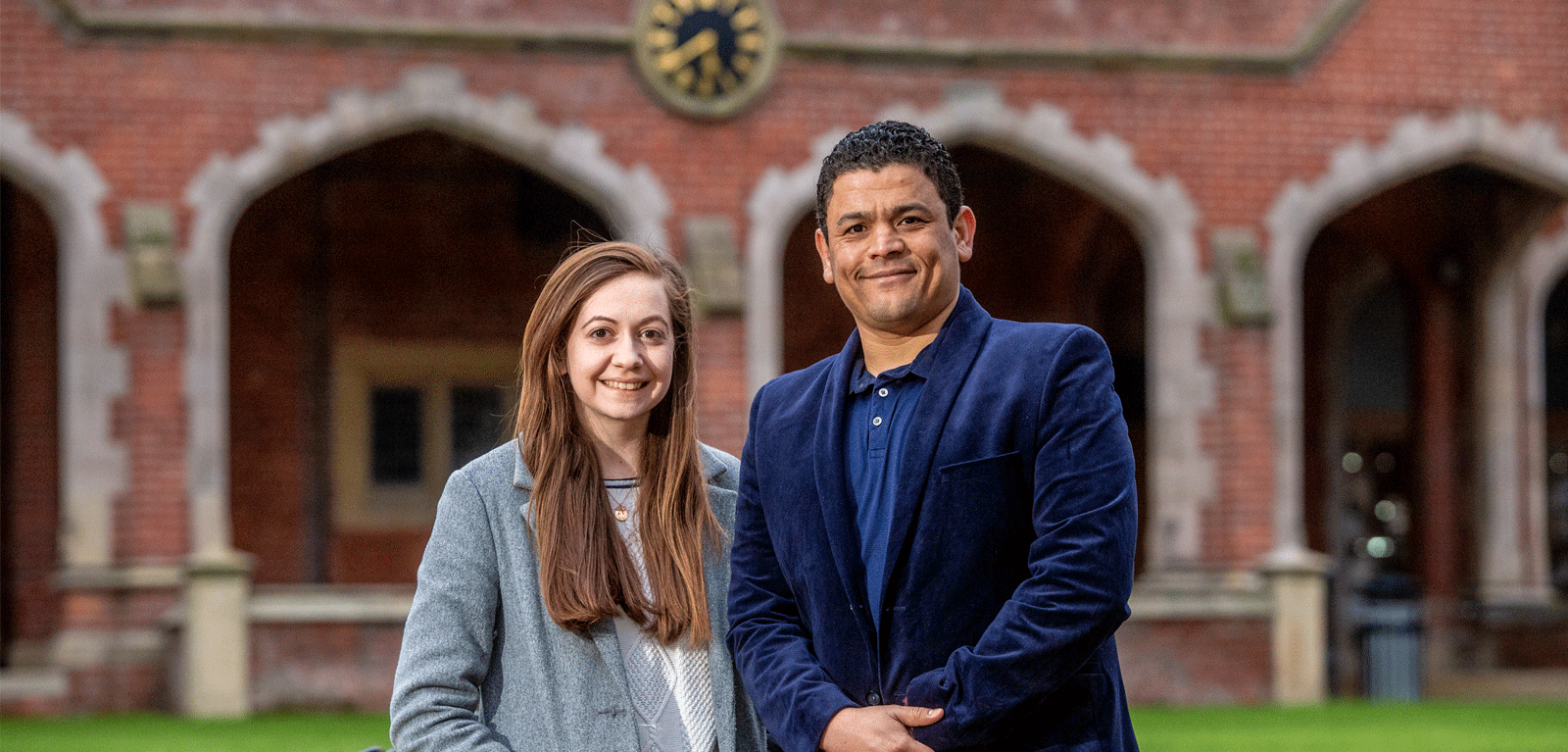Queen’s University Belfast scientists take their research to Parliament
Dr Ahmed Ibrahim Osman, a Research Fellow and Clare Burnett, a PhD Researcher at Queen’s, are attending Parliament on Wednesday 13 March to present their research to a range of politicians and a panel of expert judges as part of STEM for BRITAIN.

Ahmed is a Researcher in the School of Chemistry and Chemical Engineering, and his poster outlines his research on transforming aluminium tinfoil into a biofuel catalyst and other useful products.
Clare is a PhD Researcher in the School of Mechanical and Aerospace Engineering and her poster is about her research into future blast resistance sandwich structures.
They will be judged against dozens of other scientists’ research in the only national competition of its kind.
Ahmed, from Egypt, and Clare, from Richhill, County Armagh, were shortlisted from hundreds of applicants to appear in Parliament.
Ahmed said: “STEM for Britain is one of the most prestigious science competitions in the world and I am honoured to have been shortlisted. I hope to see my idea applied industrially to benefit people from our research work, as I believe that chemistry can make the world a better place.”
Clare said: “I applied to STEM for BRITAIN as I am keen to promote the world of Engineering and the research being undertaken at Queen’s University Belfast. I am very excited to attend the competition in Parliament and hope to engage with fellow early stage researchers, politicians and academics alike.”
Stephen Metcalfe MP, Chairman of the Parliamentary and Scientific Committee, said: “This annual competition is an important date in the parliamentary calendar because it gives MPs an opportunity to speak to a wide range of the country’s best young researchers.
“These early career engineers, mathematicians and scientists are the architects of our future and STEM for BRITAIN is politicians’ best opportunity to meet them and understand their work.”
Ahmed’s research has been entered into the chemistry session of the competition, and Clare’s research has been entered into the engineering session, both of which will end in a gold, silver and bronze prize-giving ceremonies.
Judged by leading academics, the gold medalists receive £2,000, while silver and bronze receive £1,250 and £750 respectively.
The Parliamentary and Scientific Committee runs the event in collaboration with the Royal Academy of Engineering, the Royal Society of Chemistry, the Institute of Physics, the Royal Society of Biology, The Physiological Society and the Council for the Mathematical Sciences, with financial support from the Clay Mathematics Institute, United Kingdom Research and Innovation, Warwick Manufacturing Group, Society of Chemical Industry, the Nutrition Society, Institute of Biomedical Science, the Heilbronn Institute for Mathematical Research, and the Comino Foundation.
Media
Media inquiries to Jemma Greenlees at Queen’s University Communications Office T; +44 (0)28 9097 3087 E; j.greenlees@qub.ac.uk.